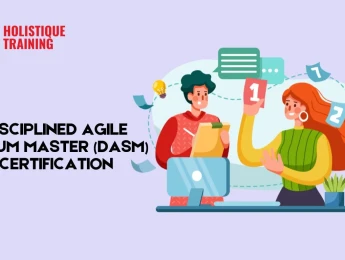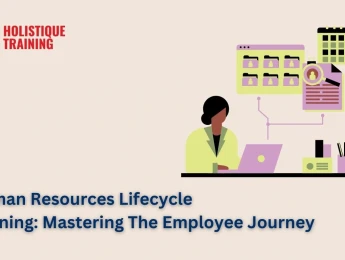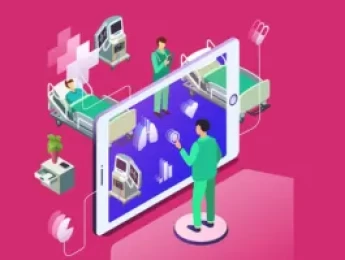In software companies, project management plays a pivotal role in ensuring the successful development and delivery of software solutions. Project managers oversee the entire project lifecycle, from conceptualisation to implementation, ensuring that projects are completed on time, within budget, and meet the specified requirements.
They collaborate closely with cross-functional teams, including developers, designers, quality assurance professionals, and stakeholders, to facilitate effective communication and coordination. Project managers create detailed project plans, set milestones, and allocate resources efficiently, all while managing potential risks and mitigating challenges that may arise during the development process.
They also play a crucial role in fostering innovation, aligning project goals with the company's strategic objectives, and maintaining a focus on delivering high-quality software that meets or exceeds client expectations. Effective project management in software companies is essential for maintaining competitiveness, enhancing client satisfaction, and ensuring the timely delivery of innovative and robust software solutions.
Upon completion of this course, participants will be able to:
- Understand the core principles of project management and its vital role in software development.
- Apply agile methodologies to increase productivity and project efficiency.
- Oversee project scope, timelines, expenses, and risks to achieve set objectives and meet stakeholder expectations.
- Foster effective communication and collaboration within diverse cross-functional teams.
- Use critical thinking and problem-solving abilities to address project challenges.
- Stay updated on evolving trends and technologies in the realm of software project management.
This course is designed for anyone responsible for managing an IT project and keeping it within scope, timescales, and budget to achieve a positive return on investment. It would be most beneficial for:
- Business Owners
- IT Consultants
- IT Specialists
- Project Managers
- Financial Officers
- Operational Management
- Business Analysts
- IT Managers
- Developers
This course uses a variety of adult learning styles to aid full understanding and comprehension. Participants will review various project management systems to understand the best methodologies and technology to use to move a project forward.
They will also participate in trainer-led presentations to understand the need for project development and talk through the potential future for software to develop forward-thinking ideas to create better company prospects.
Day 5 of each course is reserved for a Q&A session, which may occur off-site. For 10-day courses, this also applies to day 10
Section 1: The Intricacies of Managing Software Development
- Core principles of managing software development intricacies.
- Implementing Agile methodologies for efficient project execution.
- Effectively managing project scope, schedules, costs, and risks.
- Facilitating communication and collaboration within cross-functional teams.
- Applying critical thinking and problem-solving skills to overcome challenges.
- Staying current with emerging trends and technologies in software development management.
Section 2: Agile Methodologies & Monitoring Systems
- Implementing Scrum and Kanban for streamlined workflow.
- Monitoring systems and tools for Agile project tracking.
- Managing project progress through Agile frameworks.
- Agile communication and collaboration strategies.
- Continuous improvement and adaptation in Agile environments.
- Utilising key performance indicators (KPIs) in monitoring systems.
Section 3: How Technology Can Assist in Project Management
- Project management software and its applications.
- Integrating collaboration tools for seamless team communication.
- Utilising cloud-based platforms for remote project access.
- Automation in project planning, tracking, and reporting.
- Incorporating data analytics for project insights.
- Cybersecurity considerations in technology-driven project management.
- Mobile applications for on-the-go project monitoring.
- Technology trends shaping the future of project management.
Section 4: Scope, Budgeting & Schedule Management
- Techniques for effective project scope definition.
- Budget planning and allocation strategies in project management.
- Creating realistic project schedules and timelines.
- Monitoring and controlling project scope changes.
- Budget tracking and financial management in projects.
- Schedule optimization for efficient project delivery.
- Risk management in relation to scope, budget, and schedules.
Section 5: Communication & Risk Management of Your Team
- Building a communication plan for team collaboration.
- Identifying and addressing communication challenges.
- Techniques for transparent and open team communication.
- Understanding the role of communication in risk management.
- Identifying and analysing potential risks within the team.
- Strategies for mitigating and managing team-related risks.
- Balancing communication needs with risk management priorities.
Section 6: Future Trending of Software Management
- Agile and DevOps methodologies in future software management.
- AI and machine learning applications in software project management.
- Cloud-based solutions and their impact on software management.
- Evolving roles and skills in future software management teams.
- Continuous improvement and adaptation in software management.
- Cybersecurity considerations for the future of software projects.
- Industry-specific trends influencing software management.
Upon successful completion of this training course, delegates will be awarded a Holistique Training Certificate of Completion. For those who attend and complete the online training course, a Holistique Training e-Certificate will be provided.
Holistique Training Certificates are accredited by the British Assessment Council (BAC) and The CPD Certification Service (CPD), and are certified under ISO 9001, ISO 21001, and ISO 29993 standards.
CPD credits for this course are granted by our Certificates and will be reflected on the Holistique Training Certificate of Completion. In accordance with the standards of The CPD Certification Service, one CPD credit is awarded per hour of course attendance. A maximum of 50 CPD credits can be claimed for any single course we currently offer.
- Course Code PI1-124
- Course Format Classroom, Online,
- Duration 5 days














